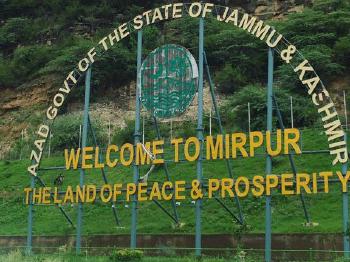A major Christian education institution in Pakistan has been returned to church control in a reversal of an earlier decision to nationalize the college.
Following intense discussions the agreement was announced on January 4 to restore the running of Edwardes College, Peshawar to the Church of Pakistan.
Among the terms of the settlement was the guarantee that the college’s Principal will be a Christian. The appointment of Dr Sharoon Hanook was confirmed the same day.

Church of Pakistan Bishop Azad Marshall (centre) denounces the commercialisation of education that followed the nationalisation of Christian educational institutes [Image credit: Kross Konnection]
Church of Pakistan Bishop Humphrey Sarfaraz Peters of Peshawar described the decision, which gives the church 75 per cent control over the college, as a “New Year gift for the whole community.”
Pakistan’s Supreme Court had announced on June 3, 2021, that the church must hand over management of Edwardes College to the local government.
Bishop Peters, who led the protests against that decision, hailed the changing of hearts and minds in government as “a work of the Holy Spirit”. He celebrated “regaining the Christian character of the college”, expressing gratitude for the prayerful support of the global Church.
Shunila Ruth, parliamentary secretary for the Ministry of Religious Affairs and Interfaith Harmony, confirmed the reversal of the June verdict, saying, “We praise and thank God that the Edwardes College matter has been solved. I sincerely wish to thank my beloved Prime Minister [Imran Khan], who has always stood with the minorities and with the Christian community.”
Edwardes College Peshawar, founded in 1855 by the Church Missionary Society, is the longest-standing missionary education institution in Khyber Pakhtunkhwa province (formerly the North-West Frontier Province). The college has an excellent reputation for high educational standards.
At a press conference in Lahore, hours before Ruth’s announcement, four Church of Pakistan bishops called for the restoration of other Christian educational institutions under government control.
Bishop Azad Marshall denounced the nationalization of Christian institutes: “It has led to the commercialization of education that resulted in the denial of quality yet inexpensive education to poor and vulnerable communities.”
From Barnabas Aid contacts and other sources

